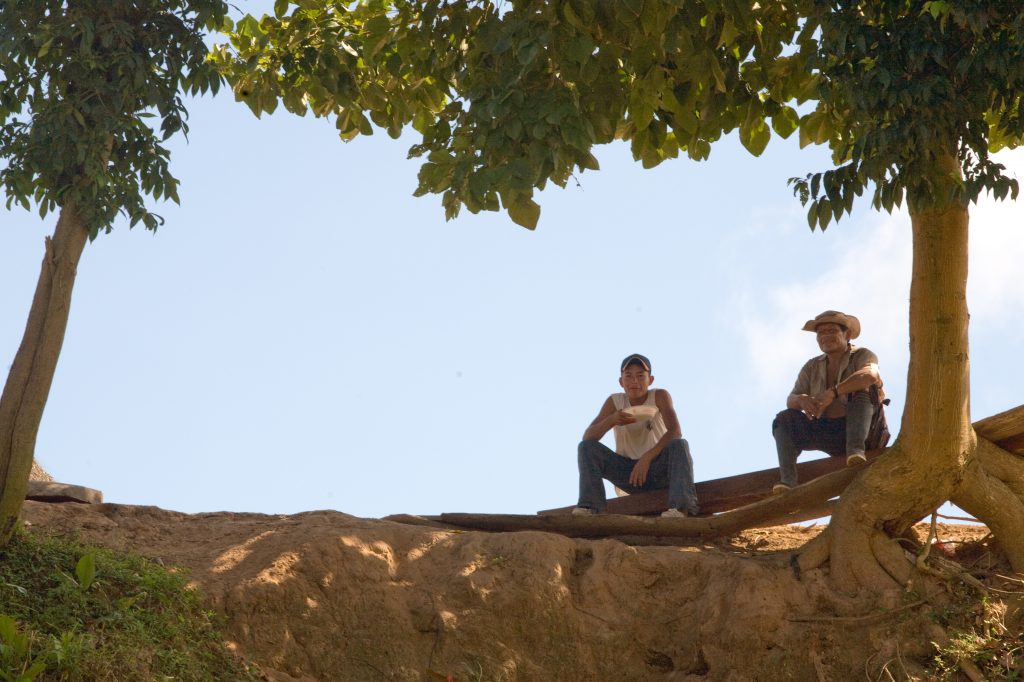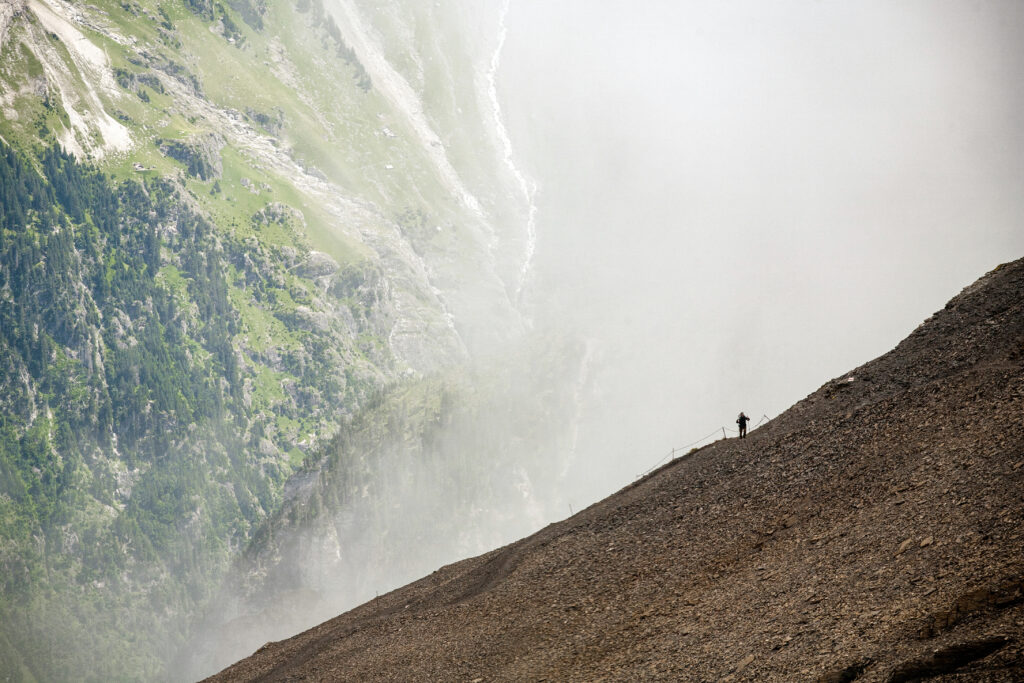“Our small Cessna bobbled lower and lower until its wheels made contact with the gravel runway, slicing through its many puddles,” Devon Faulkner wrote in a blog entry. After deplaning, Faulkner and his partner walked off the landing strip and into the jungle.
Faulkner serves as a Project 3000 missionary explorer with the International Mission Board. As an explorer, Faulkner and his ministry partner, Rhett Clarke, seek out and research unengaged and unreached Indigenous people groups in remote areas of the Amazon, bringing with them the world’s most important message — the gospel. It was that message they took into the jungle, hoping to meet someone from one of the people groups on their list.

Indigenous villagers sit along the banks of a tributary of the Amazon river. IMB Photo
After a short walk, they met a man who invited them into his home. Faulkner describes how, over an open flame, the wife made fariña, a coarse flour made from yuca, native to Indigenous people in the Amazonian rainforest. Both the husband and wife listened intently as Faulkner and Clarke shared the story of Jesus calming the storm. During their two and a half weeks in the area, they visited the couple four times and shared more than 10 Bible stories and a gospel presentation.
Little did the explorers know, they shared the gospel with a couple who practiced witchcraft. Faulkner said that realization startled him at first, but it didn’t change their commitment to share. He said he’s never seen such zeal for hearing the good news.
Faulkner and Clarke don’t explore on their own. They’ve been traveling with Willerd, a national partner who helps with translation. On this trip, they also traveled with another believer, Juan. Both men are passionate about making disciples who make disciples. This trip allowed time for Faulkner and Clarke to model what it looks like to be a disciple maker. The home village of Willerd and Juan is the only place the explorers found an evangelical presence during their recent trip.

Project 3000 explorers will journey into the unknown to find out where the unengaged and unreached people live. They will learn about their culture, discern their literacy, develop ministry strategies and find people to partner with in the missionary task. IMB Photo
During this Amazon trek, the explorers traveled for six weeks and spent time in 12 villages with 10 people groups, eight of which were on their list of unengaged, unreached people groups. They traveled by small plane, canoe and on foot. On their trips, they are off the grid with spotty cell service, miles into the rainforest. A venomous snake slid over Clarke’s foot in the canoe ride. When they travel, they sleep in hammocks and primarily eat fish and yuca.
At the end of the trip, Faulkner realized how far his Spanish progressed. He’d preached, led worship and told Bible stories, all in Spanish, for 18 days. They shared the gospel in front of 45 people. Clarke wrote on his blog that he started out the trip with five Bible stories memorized, and he came back with 12. When the explorers realized they needed more stories to share, they quickly memorized the stories in Spanish.
They often share the stories of when Jesus healed the paralytic, calmed the storm and cast out a demon. They also share the story of the prodigal son.
In one village they visited, a local missionary excitedly told them they were praying for access to several areas, and because of the explorers’ visit, the chief granted access to the village. The Bible stories they shared were well received and they were permitted to visit a second time.
Their journey led them to a highly isolated village with the hopes of locating several UUPGs. They didn’t find the groups, but the explorers found several people groups who were listed as engaged and reached, but from what they found, one small church marked the extent of the gospel witness. The pastor of the church invited the explorers to preach and share stories for seven days in a row.
Clarke wrote that although they couldn’t locate the groups they’d hoped to find, they were able to practice some of the six steps of the missionary task: entry, evangelism, discipleship, healthy church formation, leadership development and exit. As explorers, entry and evangelism are the primary ways they minister, but on this trip, they were also able to disciple a local missionary and provide support to a local pastor by preaching in his church.
At the end of the six weeks, the explorers returned to the capital city, temporarily retiring their hammocks in exchange for beds, with their report and updates on the people groups they found and the conversations they had.
Faulkner said he hopes others can come behind and water the seeds they planted. That hope is already a reality. A local national pastor and a missionary couple are watering seeds in these areas.
The IMB is ready to receive more young men and women willing to spend two years as a missionary explorer. Those interested are encouraged to visit imb.org/go.
Names changed for security.